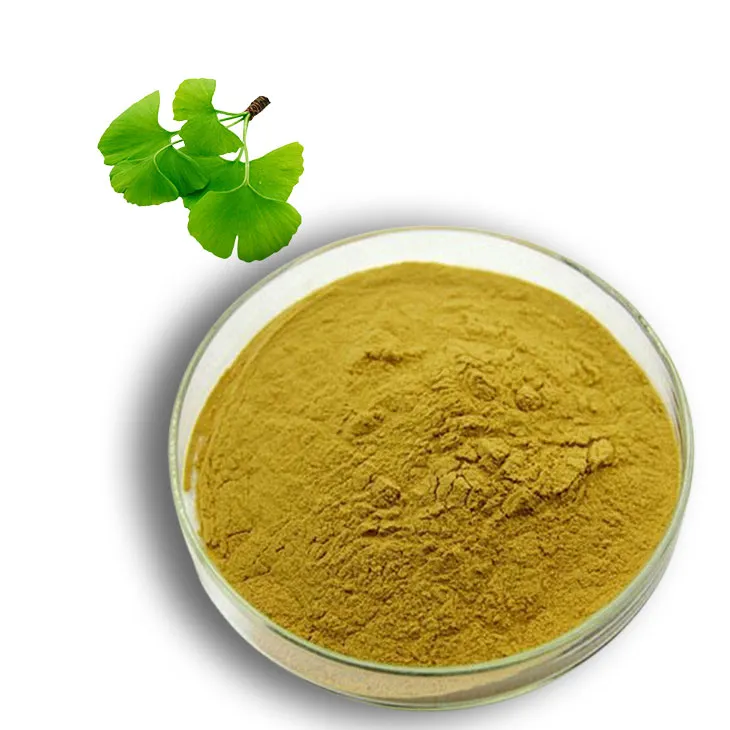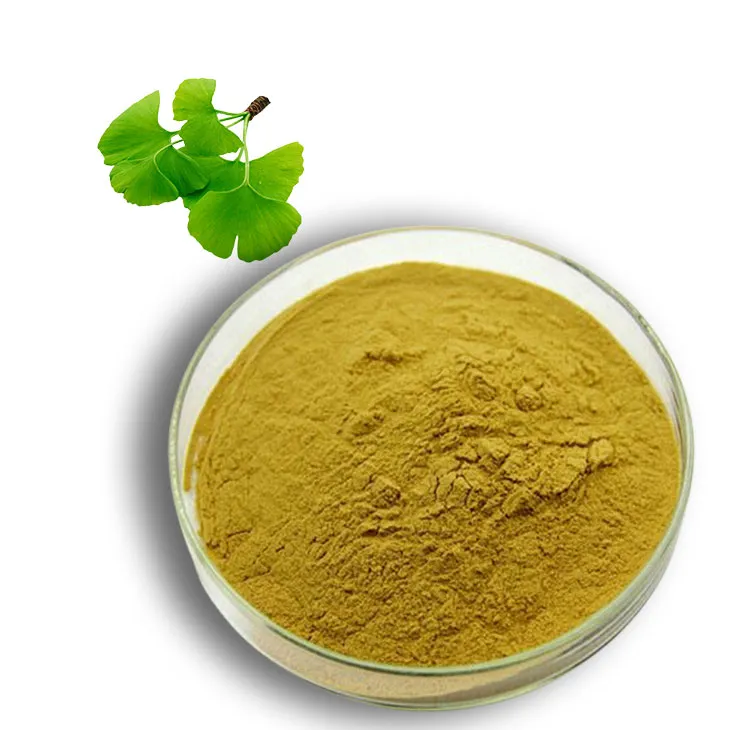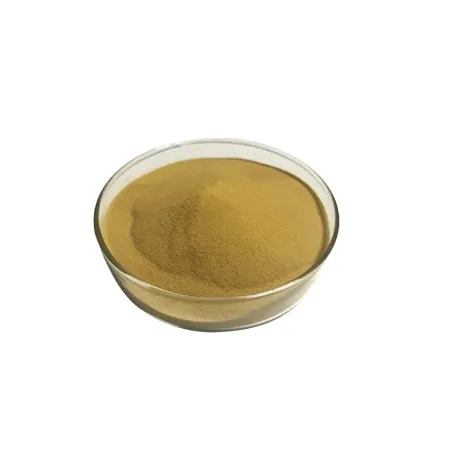- 0086-571-85302990
- sales@greenskybio.com
Ginkgo Biloba Extract: Nature's Best - Kept Secret.
2024-11-12

Introduction to Ginkgo Biloba
The ginkgo biloba tree is a remarkable and ancient species. It is often referred to as a "living fossil" as it has survived relatively unchanged for millions of years. Ginkgo biloba trees are known for their unique fan - shaped leaves. These trees are native to China and have been introduced to other parts of the world over time.
The extract from the ginkgo biloba tree has been a subject of great interest in various fields. It has a long history of use in traditional medicine, especially in Asian cultures. However, it is only in recent decades that the Western world has started to take a closer look at its potential benefits.

Active Components in Ginkgo Biloba Extract
The extract contains several active components that are thought to be responsible for its various effects on health. One of the most important groups of compounds are the flavonoids and terpenoids. Flavonoids are known for their antioxidant properties. They help to neutralize free radicals in the body, which can cause damage to cells and tissues.
Terpenoids, on the other hand, are believed to have a role in improving blood circulation. They can help to dilate blood vessels, which in turn can lead to better blood flow throughout the body. This is particularly important for the cardiovascular system, as good blood circulation is essential for a healthy heart and arteries.

Benefits for Memory and Concentration
One of the most well - known potential benefits of ginkgo biloba extract is its effect on memory and concentration. Studies have suggested that it may be able to improve cognitive function in various ways.
Firstly, by improving blood flow to the brain, it can ensure that the brain cells receive an adequate supply of oxygen and nutrients. This is crucial for optimal brain function, as the brain is a highly metabolically active organ. Without sufficient blood supply, cognitive performance can decline.
Secondly, the antioxidant properties of the extract may also play a role in protecting the brain cells from damage. Free radicals can cause oxidative stress in the brain, which has been linked to neurodegenerative diseases such as Alzheimer's and Parkinson's. By reducing oxidative stress, ginkgo biloba extract may help to preserve cognitive function as we age.
However, it should be noted that while there are some positive findings in this area, more research is still needed to fully understand the extent of its effects on memory and concentration. Some studies have had inconsistent results, and factors such as the dosage, duration of treatment, and individual differences may all play a role in determining the effectiveness of the extract.

Impact on Cardiovascular Health
The effect of ginkgo biloba extract on cardiovascular health is another area of significant interest. As mentioned earlier, the terpenoids in the extract can help to dilate blood vessels. This can lead to a reduction in blood pressure, as the widened vessels allow blood to flow more easily.
Improved blood circulation also means that the heart does not have to work as hard to pump blood around the body. This can be beneficial for people with heart conditions or those at risk of developing cardiovascular diseases.
Furthermore, the antioxidant properties of the extract may help to prevent the oxidation of LDL cholesterol. Oxidized LDL cholesterol is more likely to build up in the arteries, forming plaques that can narrow the arteries and increase the risk of heart attacks and strokes. By preventing this oxidation, ginkgo biloba extract may contribute to a healthier cardiovascular system.
However, as with its effects on memory and concentration, more research is required to confirm these potential benefits and to determine the optimal dosage and treatment regimens for cardiovascular health.

Other Potential Health Benefits
In addition to its effects on memory and cardiovascular health, ginkgo biloba extract may have other potential benefits for health.
It has been suggested that it may have anti - inflammatory properties. Inflammation is a natural response of the body to injury or infection, but chronic inflammation can be harmful and has been linked to various diseases such as arthritis, diabetes, and certain cancers. If ginkgo biloba extract can reduce inflammation, it may potentially help in the prevention or treatment of these conditions.
Some studies have also investigated its potential role in improving eye health. The eyes, like the brain, are highly sensitive to oxidative stress. The antioxidant components of the extract may be able to protect the eyes from damage caused by free radicals, potentially reducing the risk of age - related macular degeneration and other eye diseases.
There is also some evidence to suggest that ginkgo biloba extract may have a positive effect on sexual function. However, more research is needed in this area to fully understand how it may work and whether it can be a viable treatment option for sexual dysfunction.
Research and Studies
Over the years, there have been numerous research studies on ginkgo biloba extract. These studies have used a variety of methods, including animal models, cell cultures, and human clinical trials.
In animal studies, researchers have been able to observe the effects of the extract on physiological processes such as blood circulation, antioxidant activity, and cognitive function. These studies have provided valuable insights into the potential mechanisms of action of ginkgo biloba extract.
Cell culture studies have allowed scientists to study the direct effects of the extract on cells. For example, they can investigate how the flavonoids and terpenoids interact with cells, and how they may protect cells from damage or promote cell growth and function.
Human clinical trials are perhaps the most important type of study when it comes to evaluating the effectiveness of ginkgo biloba extract for human health. However, these trials have had some challenges. For example, the results have sometimes been inconsistent, which may be due to differences in study design, participant characteristics, and the quality of the extract used.
Despite these challenges, the body of research on ginkgo biloba extract continues to grow, and new studies are constantly being conducted to further explore its potential benefits and risks.
Safety and Side Effects
While ginkgo biloba extract is generally considered safe for most people when taken in appropriate doses, it is not without potential side effects.
Some people may experience mild side effects such as headache, dizziness, or gastrointestinal discomfort. These side effects are usually temporary and tend to resolve on their own. However, in rare cases, more serious side effects may occur, especially if the extract is taken in large doses or in combination with certain medications.
It is important to note that ginkgo biloba extract can interact with some medications, including blood - thinning drugs, anti - platelet drugs, and some antidepressants. If you are taking any medications, it is advisable to consult your doctor before starting to take ginkgo biloba extract.
Also, pregnant and breastfeeding women should avoid taking ginkgo biloba extract, as there is not enough evidence to determine its safety during pregnancy and lactation.
Conclusion
Ginkgo biloba extract is a natural substance with a long history of use and many potential health benefits. From its effects on memory and concentration to its impact on cardiovascular health and other aspects of well - being, it has attracted the attention of researchers and health - conscious individuals alike.
However, while there are some promising findings, more research is still needed to fully understand its mechanisms of action, determine the optimal dosage, and confirm its effectiveness for various health conditions. Additionally, it is important to be aware of the potential side effects and interactions with medications when considering using ginkgo biloba extract.
In conclusion, ginkgo biloba extract remains a fascinating and somewhat mysterious natural wonder, and further exploration of its properties and potential applications is likely to continue in the future.
FAQ:
What are the main active components in Ginkgo Biloba Extract?
There are several important active components in Ginkgo Biloba Extract. Flavonoids and terpenoids are among the main ones. Flavonoids have antioxidant properties, which can help protect cells from damage. Terpenoids are believed to contribute to the extract's effects on blood circulation and other physiological functions.
How does Ginkgo Biloba Extract boost memory and concentration?
It is thought that Ginkgo Biloba Extract may improve blood flow to the brain. By enhancing cerebral circulation, more oxygen and nutrients can reach the brain cells. This can potentially enhance neurotransmitter function and synaptic plasticity, which are important for memory and concentration processes. However, more research is still needed to fully understand the exact mechanisms.
Is Ginkgo Biloba Extract safe for everyone?
While Ginkgo Biloba Extract is generally considered safe for most people when taken as directed, it may not be suitable for everyone. For example, people taking certain medications, such as blood thinners, should be cautious as it may increase the risk of bleeding. Pregnant or breastfeeding women should also consult a doctor before using it. Additionally, some individuals may experience side effects like headache, dizziness or gastrointestinal upset.
How long does it take to see the effects of Ginkgo Biloba Extract on cardiovascular health?
The time it takes to observe the effects on cardiovascular health can vary from person to person. Some people may notice improvements in blood circulation - related symptoms, such as reduced leg pain from poor circulation, within a few weeks. However, for more significant long - term effects on cardiovascular risk factors, it may take several months of consistent use. This is also dependent on factors like the individual's overall health, diet and lifestyle.
Why has Ginkgo Biloba Extract remained an enigma until now?
There are several reasons. Firstly, the complexity of its active components and the multiple biological processes it may affect make it difficult to fully understand. Secondly, the different methods of extraction and varying quality of products in the market can lead to inconsistent results in research. Also, the traditional use of ginkgo biloba in different cultures has been based on empirical knowledge rather than a complete scientific understanding, which has added to its mysterious nature.
Related literature
- The Ginkgo Biloba Extract: A Comprehensive Review of Its Pharmacological Properties and Therapeutic Applications"
- "Ginkgo Biloba and Cognitive Function: A Review of the Evidence"
- "Ginkgo Biloba Extract in Cardiovascular Health: Current Understanding and Future Perspectives"
- ▶ Hesperidin
- ▶ Citrus Bioflavonoids
- ▶ Plant Extract
- ▶ lycopene
- ▶ Diosmin
- ▶ Grape seed extract
- ▶ Sea buckthorn Juice Powder
- ▶ Fruit Juice Powder
- ▶ Hops Extract
- ▶ Artichoke Extract
- ▶ Mushroom extract
- ▶ Astaxanthin
- ▶ Green Tea Extract
- ▶ Curcumin
- ▶ Horse Chestnut Extract
- ▶ Other Product
- ▶ Boswellia Serrata Extract
- ▶ Resveratrol
- ▶ Marigold Extract
- ▶ Grape Leaf Extract
- ▶ New Product
- ▶ Aminolevulinic acid
- ▶ Cranberry Extract
- ▶ Red Yeast Rice
- ▶ Red Wine Extract
-
Polygonum Cuspidatum Extract
2024-11-12
-
Black Rice Extract
2024-11-12
-
Shikonin
2024-11-12
-
Wheat Germ Extract
2024-11-12
-
Golden Seal Extract
2024-11-12
-
Honeysuckle Pollen
2024-11-12
-
Withania Somnifera Extract
2024-11-12
-
Sugarcane Extract
2024-11-12
-
Agaricus Blazei Extract
2024-11-12
-
Beetroot juice Powder
2024-11-12





















